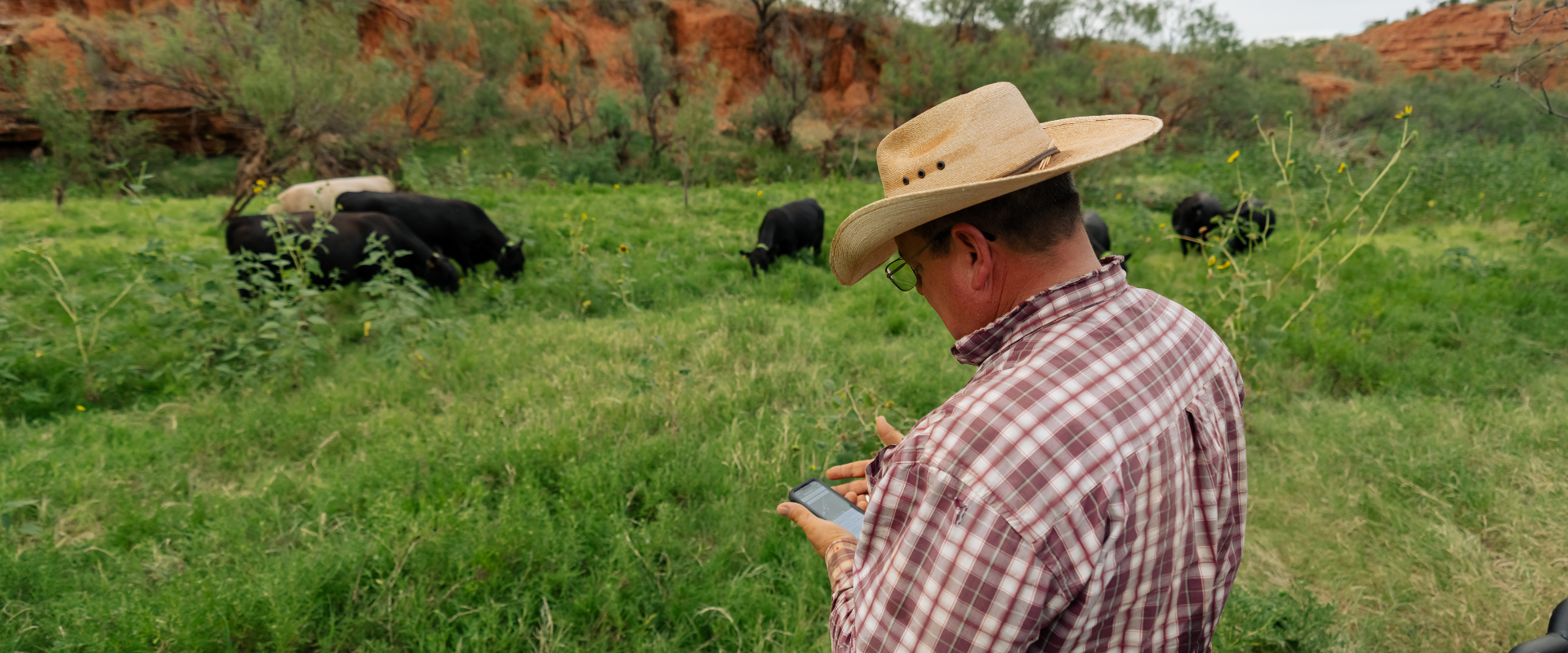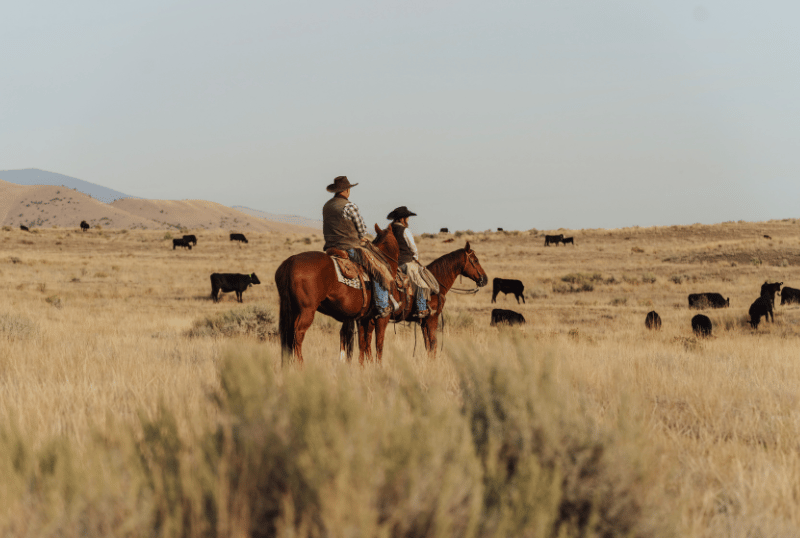
Breathing life into rugged Texas terrain
In the heart of Fisher County, Texas, ranching means working country that is as rough as it comes. Deep-cut creeks, washed-out roads, and miles of hard-to-reach pasture make every day a challenge.
For Bob Spikes, cattle have always been a part of life, even during his 37-year career as a school administrator. Now retired, he is pouring his full attention into reviving a long-neglected 700-acre lease. With Nofence, Bob is finding more efficient and less labor-intensive ways to graze cattle in some of the most unforgiving terrain West Central Texas can offer.

Ranching roots, reimagined
Ranching runs in Bob’s blood. “My grandfather was born in 1895 and made his living as a rancher,” he says. “Those roots go way back.” After 37 years in the school system, he retired and turned his full attention to the work that had always been part of his life.
Together with his wife, he owns 950 acres in Fisher County to run his cow/calf operation. In 2024 he took on a new challenge by leasing an additional 700 acres of rough, overgrown land. The lease centered on long-term improvements to restore the land’s productivity, repair access to the pasture and building a corral. From the start, Bob knew the creek crossings would be one of his biggest challenges. “The first
time it rained, the creek crossings got washed out. For six weeks I couldn’t even get over there,” he says. Red Creek, with its 235-foot elevation drop, cuts through the property and creates water gaps that never last. “We call them water gaps because they’re only there until the next rain washes them away. It would be an endless battle to keep fences up.”
Between the unstable creek banks, washed-out roads, and miles of rough ground, building and maintaining a physical fence here would be costly and short-lived. This country demanded a fence that could cross rock, brush, and creek without a single strand of wire.

“The first time it rained, the creek crossings got washed out. For six weeks I couldn’t even get over there. We call them water gaps because they’re only there until the next rain washes them away.
It would be an endless battle to keep fences up.” — Bob Spikes

Why Nofence?
Bob looked into all the virtual fencing providers before choosing Nofence. He wanted something straightforward to run, without the hassle of extra equipment, and that could still do the job in country where cell service is limited but steady enough to count on. “I ran the numbers,” he
says. “Some of the other systems needed expensive base stations and line of sight. That’s a no-go out here. It’s just too remote.”
What stood out about Nofence was the use of GPS-based boundaries without any need for base stations. “With Nofence, I can track and contain the herd even in areas where I couldn’t buy a signal with a 400-foot tower,” Bob explains. He also liked that the collars could be managed entirely from his phone, allowing him to adjust grazing areas on the go. “If I can use this system to graze a few more cows on the same land, that pays for the collars,” he says. “And if I don’t have to fight the creek crossings every time it rains, that’s a huge win.”

“Some of the other systems needed expensive base stations and line of sight. That’s a no-
go out here. It’s just too remote. With Nofence, I can track and contain the herd even in areas where I couldn’t buy a signal with a 400-foot tower." — Bob Spikes

Restoring land with rotational grazing
The leased land hadn’t been grazed in over 18 months. The creek bottoms were overgrown, while upland areas looked like “the Mojave Desert.” But Bob sees potential. Using the app, he mapped out a rotational grazing system that moves cattle through different areas while ensuring they have access to a water source.
“I can divide the whole unit into thirds and move cows every few days without setting foot on the place or pulling a single wire,” he explains. “That kind of flexibility lets me be a better steward of the land.” It’s an approach he’s used with success on his home property, where he’s divided large pastures into smaller units to rest and restore native grasses. Now, he’s doing the same on the leased pasture, with less labor and more control.

Bob plans to expand the number of collars he's using on his herd. Nofence virtual fencing is serving as a way to make the ranching lifestyle more viable for his next generation.
Setting the stage for the next generation
For Bob, Nofence isn’t about eliminating all fences, it’s about making ranching more manageable in tough conditions. He started with 20 cows on the new leased property and is already planning to expand. “I’ll buy more collars as I grow the herd,” he says. “So far, it’s doing
everything I hoped it would, and more.”
He also sees it as a way to make the lifestyle more viable for younger generations. “My daughters are in their 30s. Their generation values time differently. For them, technology like this is going to be key if they ever want to step into this life.”
For now, he’s focused on showing what’s possible, on his land and beyond. “If someone’s curious, I’ll take them out there and show them what we’re doing,” he says. “Seeing it in action makes all the difference.”

